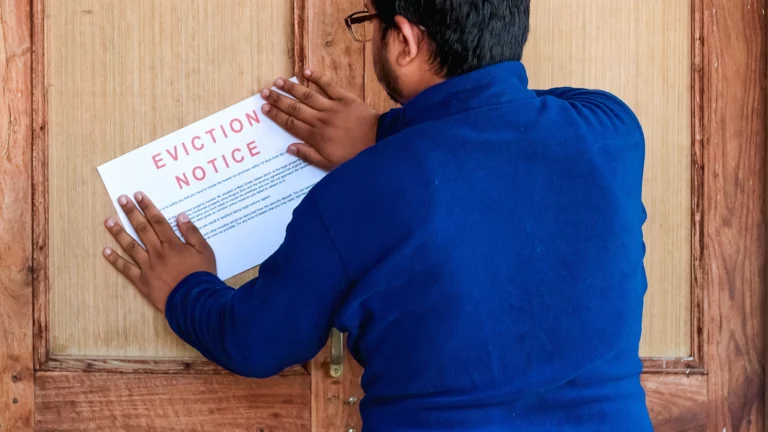Do Employers in California Check If Doctor’s Notes Are Real?

You wake up with a fever, the room spins, and just standing feels like a marathon. You see your doctor, get a note, and send it to HR—then the nagging thought pops up: will they call to check? In California, that question comes up more than people realize. Nakase Law Firm Inc. often gets asked a very direct version of it: do employers verify doctor’s notes in California?
For workers, a note is reassurance—proof you’re not cutting corners. For managers, it’s a way to keep the system fair. And yes, that push-and-pull creates stress on both sides. Plus, people bring their wider lives to work, so concerns blur together. California Business Lawyer & Corporate Lawyer Inc. hears questions in the same spirit but about different topics, such as how long does a misdemeanor stay on your record in California? It’s a reminder that personal realities and workplace rules often collide.
What employers can ask for
Let’s keep it simple. In California, an employer can ask for a doctor’s note in certain situations—say, when an absence stretches beyond a few days, or when someone requests protected leave under laws like the Family and Medical Leave Act (FMLA) or the California Family Rights Act (CFRA). The key is scope. Employers aren’t entitled to a diagnosis or a deep medical backstory. They can ask for confirmation that time off is needed and, if relevant, when you’re expected to return. And that’s it.
Here’s a quick real-world moment: Mia, a warehouse lead, took four days off for a nasty bout of strep. HR asked for a note confirming treatment and time away. The note didn’t list her test results. It just said “off work from X to Y.” Clean, clear, compliant.
The difference between a check and a dig
Verification is not an interrogation. Think of it like confirming a signature on a check—validating the source, not extracting private details. So, yes, a company may call the clinic to confirm that a provider actually issued a note. No, they may not fish for extra information. Cross that line and trust evaporates, fast.
Picture this: your supervisor calls the clinic and asks, “Did you write the note for Jordan?” The front desk says, “Yes, on Tuesday.” And the call ends there. No diagnoses, no lab numbers, no personal history.
How paid sick leave shapes expectations
California’s Healthy Workplaces, Healthy Families Act lets employees earn and use sick time for medical needs, appointments, or caring for family. For a single day or two, demanding a note can feel like overkill. On top of that, the cost and time of a clinic visit just to justify a sniffly day at home can be more burden than help. From there, as absences get longer, asking for a note starts to make sense again. The trick is matching requests to the situation so policy doesn’t turn into paperwork for paperwork’s sake.
When disability or long-term conditions are involved
For ongoing conditions, the focus shifts to the “interactive process” under the Americans with Disabilities Act (ADA) and California’s Fair Employment and Housing Act (FEHA). The conversation centers on what helps the person perform the job safely and effectively. A provider might state the job impact and the adjustments needed—say, flexible start times or an ergonomic chair. The diagnosis stays private. And yes, that boundary matters for dignity and trust.
The usual ways employers verify
Most companies follow a few low-drama steps that keep everyone on solid ground:
- Confirm the note came from the listed provider—no medical Q&A.
- Check the absence against policy—nothing fancy, just consistency.
- Route sensitive paperwork through HR or a third-party leave administrator to keep direct supervisors out of private details.
By the way, that last step helps a lot. It reduces awkward conversations and keeps sensitive info in the right hands.
If a note looks off
Every now and then a note raises questions. Maybe the clinic name is misspelled, or the dates don’t line up with timecards. In that case, HR can ask for clarification or additional documentation. Even so, if the employee’s note is legitimate, discipline isn’t on the table. On the flip side, if a fake is uncovered, the company may follow its standard conduct policy. Fairness cuts both ways.
Here’s a quick scenario: Luis submitted a note dated Saturday for a Wednesday absence. HR spotted the mismatch, asked for a corrected copy, and the clinic re-issued a note with the right date. No drama, no penalty—just a clean fix.
HIPAA confusion, cleared up
People often say “HIPAA” whenever medical privacy comes up. Here’s the clean version: HIPAA binds healthcare providers and insurers, not employers. Even so, once a company receives medical information, California privacy rules require secure storage, limited access, and separation from regular personnel files. So, your medical paperwork shouldn’t sit in the same folder as your performance review.
FMLA/CFRA: formal leave with guardrails
With FMLA or CFRA, the process is more structured. Medical certification is common, and requests for clarification go through HR or a third-party—not your direct manager. That buffer protects privacy and cuts down on awkward chats at the copier. Plus, it’s not a tool to discourage legitimate leave. If certification turns into a hurdle race, that’s a red flag.
Practical tips for employers
Here’s what tends to work well:
- Put a clear policy in writing about when notes are required and who receives them.
- Train managers so they keep conversations respectful and on track.
- Use a centralized or third-party process to handle medical paperwork.
- Keep requests tight: confirm the need for leave, expected duration, and limits related to the job—nothing more.
- Log communications and decisions so there’s a tidy record.
That said, policies land better when they’re shared in plain language and rolled out before a crisis. Nobody likes a rule that shows up mid-flu.
What employees can do
If your note is questioned, stay steady. Provide the documentation the policy calls for, and keep personal details out of it. If you sense the request is going beyond what’s reasonable, ask HR to clarify what, exactly, is needed and why. And if things still feel off, a quick consult with an employment attorney can provide a roadmap. Also worth remembering: retaliation for lawful sick time or valid medical documentation is not allowed in California.
A small tip from countless HR desks: snap a photo of your note before you submit it. If something gets lost in the shuffle, you’ve got a clean copy ready to go.
Bringing it together
So, do employers verify doctor’s notes in California? Yes, they can confirm authenticity and timing, especially for longer absences or accommodation requests. At the same time, they don’t get a peek into diagnoses or private histories. The broader goal is balance—keeping workplaces running without trampling privacy. For employees, knowing where the lines are helps you respond with confidence. For employers, keeping verification narrow and respectful preserves trust.
Think of a doctor’s note as part of a bigger conversation: health, work, and mutual respect. Get that conversation right, and the note becomes what it was always meant to be—simple, clear, and enough.





